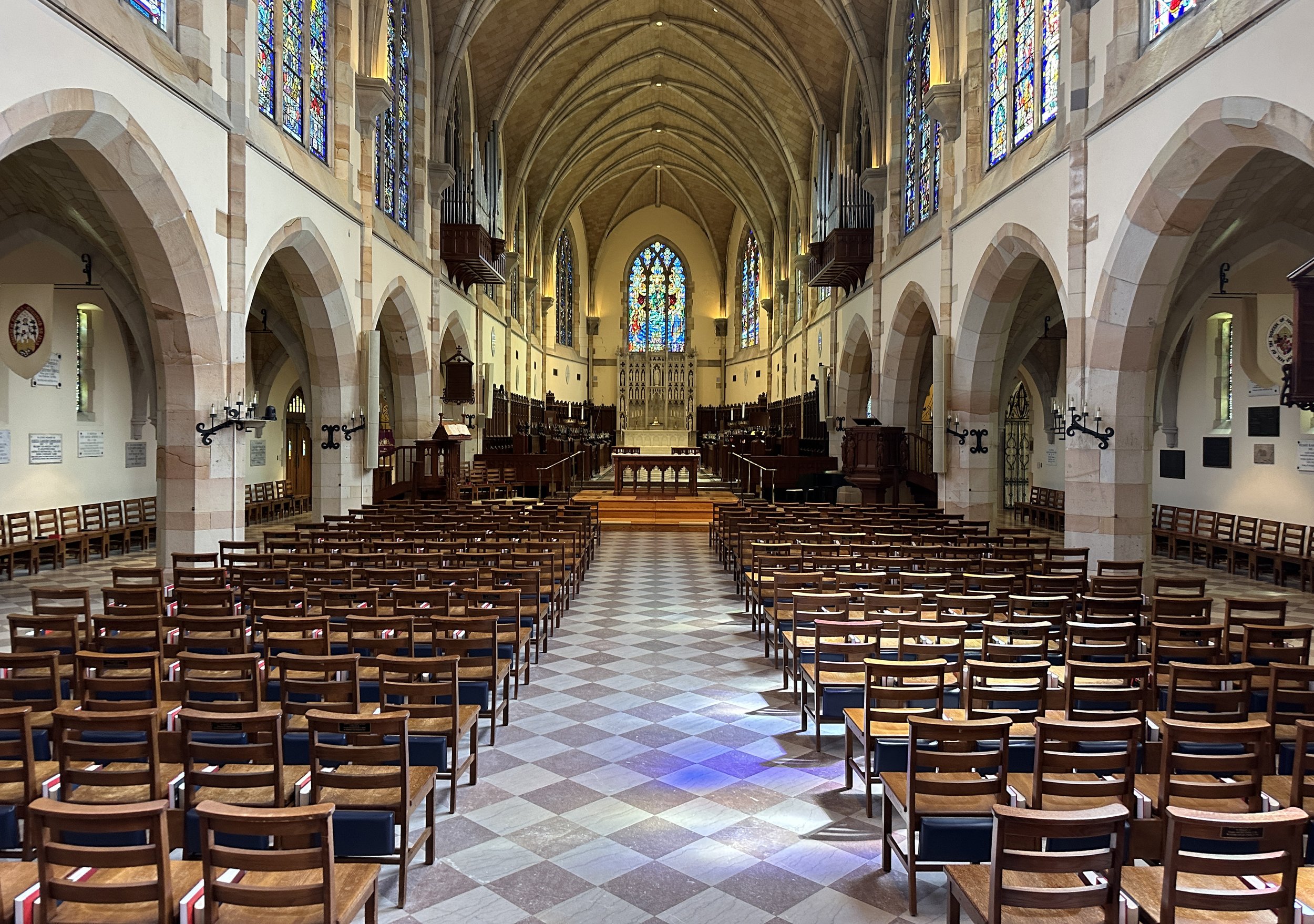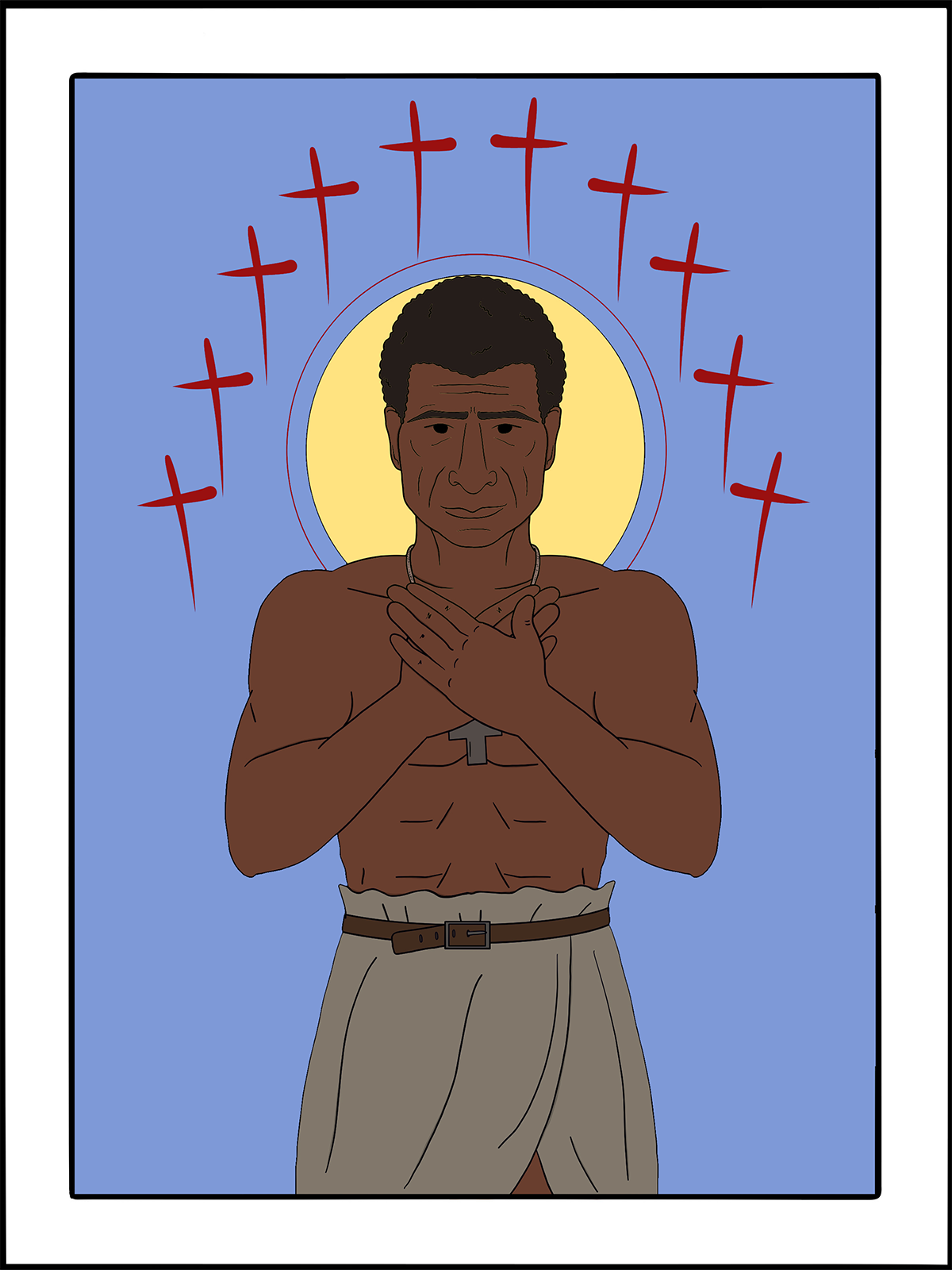
September 2
The Martyrs of New Guinea
1942
art by Rev. Kirsten Kohr of Geneva, Ohio Almighty God, we remember before you this day the blessed martyrs of New Guinea, who, following the example of their Savior, laid down their lives for their friends, and we pray that we who honor their memory may imitate their loyalty and faith; through Jesus Christ our Lord, who lives and reigns with you and the Holy Spirit, one God, for ever and ever. Amen.
New Guinea, the second-largest island in the world, is still one of the main frontiers of Christian mission, because of its difficult terrain and the cultural diversity of its peoples, who speak some 500 distinct languages. Christian missionaries first began work there in the 1860s and 1870s, with only limited success. The Anglican mission began in 1891, and the first bishop was consecrated in 1898.
During World War II, the suffering of both the native people and the missionaries was severe. One historian reckons that the total number of martyrs from all Christian denominations during this period was around 330. This feast day, observed in the Diocese of New Guinea and in the Church of Australia, marks the witness of nine Australian missionaries and two Papuan martyrs who died while serving those who needed them.
The missionaries were determined to remain with their people during the Japanese invasion and to continue their work of healing, teaching, and evangelism. Once the invasion occurred, however, they realized that their presence was a danger to the local people with whom they stayed; any people of European descent were considered enemy combatants, and villages harboring them were severely punished. Two of the missionaries, one Australian and one Papuan, were evacuating with the villagers when their boat was strafed and sunk by seaplanes. The remaining missionaries were captured in the bush. Some were executed by soldiers, and others by locals who feared retribution for their presence.
One of the Papuan martyrs, Lucian Tapiedi, is among the ten twentieth-century martyrs honored with a statue above the west door of Westminster Abbey in London. While accompanying his Australian companions as a guide, he was separated from the group and killed by a local Orokaiva named Hivijapa. After the war, Hivijapa converted to Christianity, was baptized as Hivijapa Lucian, and built a church at Embi in memory of the evangelist whom he had slain.
In 1950, the Primate of the Anglican Church in Japan gave several bamboo crosses to be erected at the parish churches of the martyrs as a mark of contrition. In addition to remembering those who gave up their lives, the day also includes remembrance of the faith and devotion of Papuan Christians of all churches, who risked their own lives to care for the wounded and to save the lives of many who otherwise would have perished.
Excerpted directly from “Lesser Feasts and Fasts 2022,” p. 386-387.

